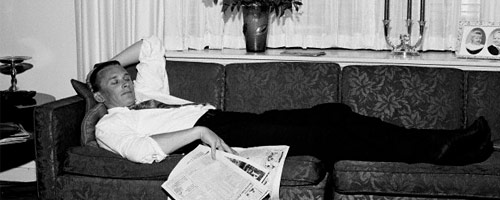Take
a Nap

The average adult only gets about six hours of sleep a night—two hours less than the recommended amount. The key to staying alert and functioning is making up some of the deficit with a little midday shut-eye.
But in America's multi-tasking, double-caff, workaholic culture, sleeping during the day is often thought of as a sign of weakness. Even though a NASA study led by the University of Pennsylvania School of Medicine found that a 30 to 40 minute nap significantly increases alertness and memory by up to 100%. Other studies have found that a 20 minute nap is more effective than a grande-sized Starbucks coffee or a bout of exercise.
Break up your busy days with a nap and return to the second part of your day as rested, refreshed and energetic as you were in the first. Here's how to do it.
Perfecting the Power Nap
Prime nap time is 1 to 3 pm.
This is when you naturally experience that midday dip in energy and concentration.
Silence your phone and set your alarm.
20 minutes will increase alertness and motor skills; 40 minutes will help boot memory function.
Close your eyes and concentrate on your breathing.
Mentally whisper the words "in" and "out" with each deep breathe. This will assist in pacing and relax you.
When your alarm goes off, don't spring up.
Open your eyes slowly, start wiggling your fingers and toes. Sit up and stretch. Within a minute you'll be awake and energized.
